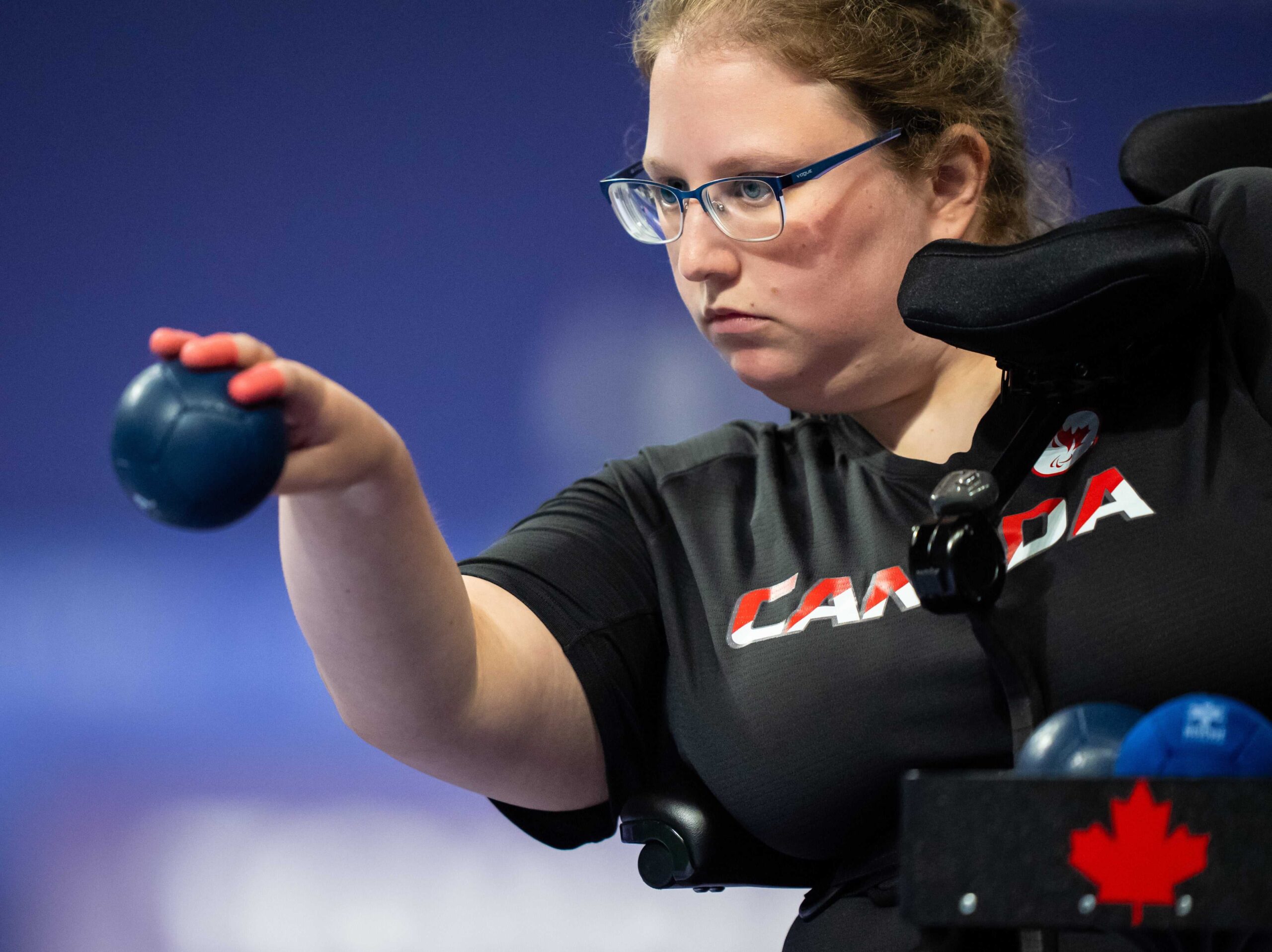
Boccia
Summer Sports
Like Lawn Bowls, Boccia is a game of precision that demands intense focus. The primary objective is to throw leather balls as close to the jack as possible. There are four classifications, three of which are for players with cerebral palsy. It is practiced in more than 50 countries today.
Boccia is played indoors on a flat, smooth surface. The players propel leather balls (six per competitor) as close as possible to a white target ball (called the “jack”) on a long, narrow field of play. A match has four ends. At the end of the game players receive one point for each ball closer than their opponents’ to the jack.
All events are mixed gender and feature individual, pair, and team competitions for a total of seven medal events. Throwers with cerebral palsy play in teams of three members for six ends; each team member “throws” two of the six balls per end. Pair games are played by athletes with non-cerebral palsy impairments who are able to throw and by athletes who may use a ramp as an assistive device to propel the ball. A pair of two plays four ends with each playing three balls.
Crowd participation is welcomed and encouraged, however, spectators, including team members not in competition, are encouraged to remain quiet during the action of a player throwing the ball.
Canadians Marco Dispaltro and Josh Vander Vies won the bronze medal in the BC4 pairs at the London 2012 Paralympic Games. It was Canada’s seventh Paralympic medal in boccia. Dispaltro ended the 2014 season ranked number-one in the world, while Vander Vies announced his retirement in May 2015.
Boccia is governed by the Boccia International Sport Federation and Boccia Canada within Canada.
Paralympic boccia is open to male and female athletes with severe locomotive disabilities of a cerebral or non-cerebral origin. This includes individuals with cerebral palsy (CP), stroke, traumatic brain injury, high-level spinal cord injuries, muscular dystrophy, multiple sclerosis, ALS and arthrogryposis. Only athletes with an involved disability are eligible to compete in boccia.
Players are classified into four classes depending on their functional ability:
"*" indicates required fields